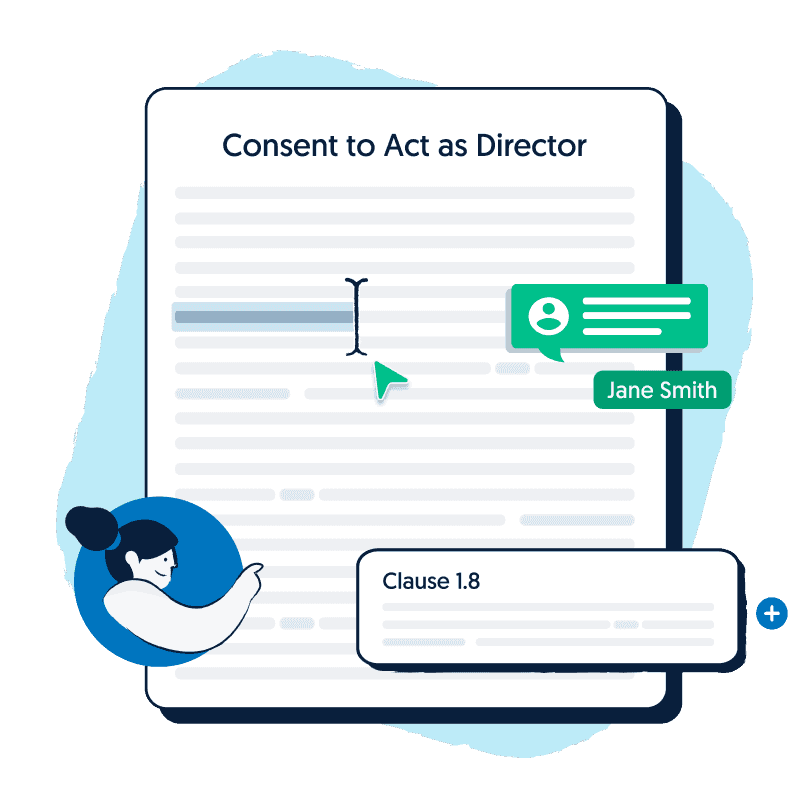There might be times where a company director cannot be there to manage a company’s affairs in person. In these circumstances, you can appoint an alternate director. Alternate directors have all the functions of a principal director and also have the same duties. In this guide, we’ll explain when and how you can appoint an alternate director.

Get your Consent to Act as Director legal document for free.
A Consent to Act as Director document is a written consent that the director agrees to be a director of a company. Access other 350+ documents when you sign up to a plan with Lawpath.
What Is An Alternate Director?
If a company director cannot exercise their duties for a set period of time, they can appoint someone to act in their role. This person is known as an alternate director, and is simply a substitute for the principal director. You can appoint an alternate director for a set period of time or indefinitely until you return to your duties. This allows directors to make arrangements if they plan to be absent from board meetings or other events where they would like their powers executed.
How to appoint an Alternate Director
The Corporations Act 2001 (Cth) covers the rules regarding alternate directors. At law, alternate directors have the same powers, duties and also responsibilities as directors. Therefore, companies must consider whether this is necessary and appropriate. However, the director has the authority to limit or expand their powers and responsibilities. However, this all depends on the terms of their appointment. Section 201K of the Corporations Act also stipulates some organisations may replace these rules with the company’s own constitution. If you are looking to appoint an alternate director, there are certain steps you must comply with to ensure the appointment meets the legal requirements prescribed by the Australian Securities and Investments Commission (ASIC).
Directors Duties
All directors, including alternate directors, have certain basic legal duties and responsibilities that they must abide by.
The Corporations Act consists of four main duties which are:
- To exercise care and diligence
- To act in good faith
- The proper use of their position
- The proper use of company information
Finally
For small businesses with sole directors it is important that you consider who can stand in your place. This is because you may need to appoint an alternate director if an unforeseen event occurs such as physical incapacity, mental illness, or death. It’s important to also bear in mind that your power of attorney will not automatically assume this role. This is because an enduring power of attorney cannot just take on your duties. Your power of attorney can only make decisions about you personally, not your company. Appointing an alternate director means that this delay can be avoided and the day to day running of the company can continue seamlessly.




